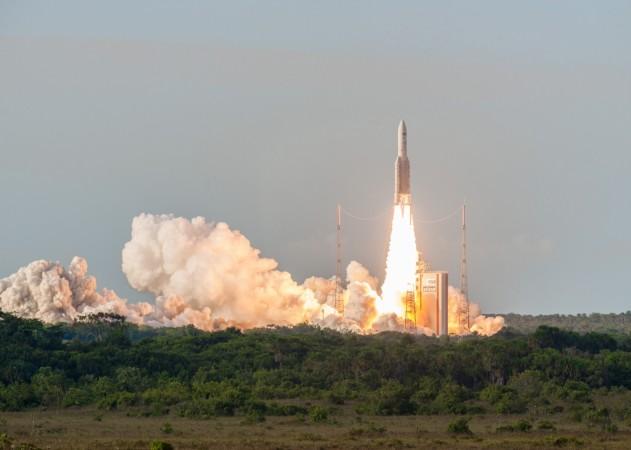
The GSAT-18 — the latest in the line of communication satellites developed by the Indian Space Research Organisation (Isro) — was launched to space from Kourou in French Guiana by the Ariane-5 VA-231 on Wednesday, October 5, according to local time. It was Thursday in India when the launch took place.
The satellite, which Isro says has a designed in-orbit operational life of 15 years, was launched along with the Australian payload, Sky Muster II. According to the Isro official website, "Weighing 3,404 kg at lift-off, GSAT-18 carries 48 communication transponders to provide services in Normal C-band, Upper Extended C-band and Ku-bands of the frequency spectrum. GSAT-18 carries Ku-band beacon as well to help in accurately pointing ground antennas towards the satellite."
It adds: "GSAT-18 is designed to provide continuity of services on operational satellites in C-band, Extended C-band and Ku-bands. GSAT-18 was launched into a Geosynchronous Transfer Orbit (GTO) by Ariane-5 VA-231 launch vehicle." The GSAT-18 derives 6,474 W of power from solar arrays and two 144 Ah Li-Ion batteries.
After the launch, it took the GSAT-18 32 minutes and 33 seconds to separate from the launch vehicle. The Isro statement said: "After its injection into GTO, Isro's Master Control Facility (MCF) at Hassan took control of GSAT-18 and performed the initial orbit raising manoeuvres using the Liquid Apogee Motor (LAM) of the satellite, placing it in circular Geostationary Orbit."
The launch was supposed to take place a day earlier, but was deferred by 24 hours due to unfavourable weather conditions. When it finally took place, the launch saw clear weather that facilitated smooth operation.
GSAT-18 was the 20th satellite from Isro that Arianespace launched into space. According to the company's official website: "Since the launch of the Apple experimental satellite on Flight L03 in 1981, Arianespace has won 86 percent of the geostationary orbit launch contracts that the country has opened to non-Indian launch systems."













